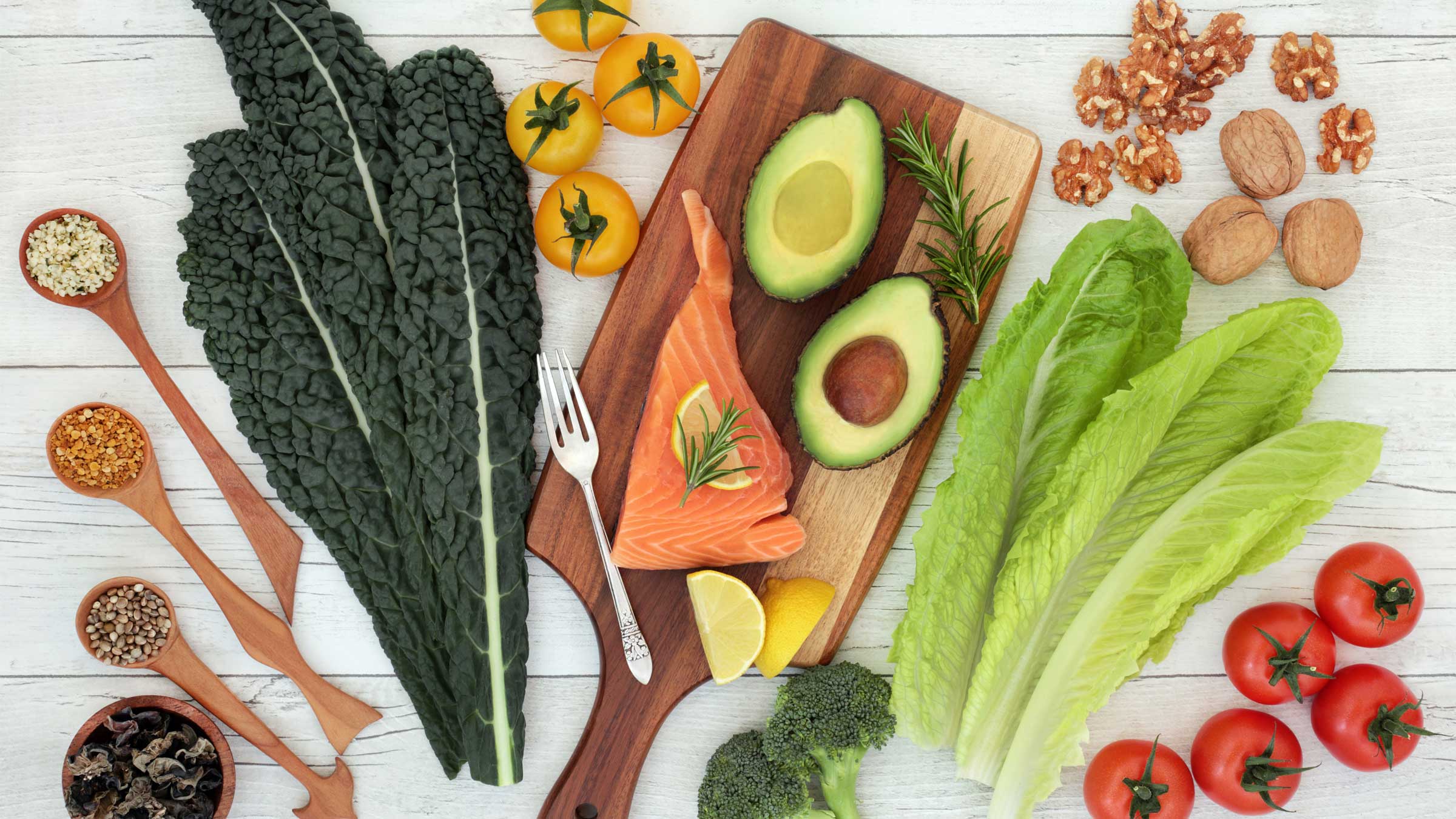
The MIND diet is an eating plan that focuses specifically on foods shown to improve brain function. It stands for Mediterranean-DASH intervention for neurodegenerative delay and is a hybrid, so to speak, of two other diets: the Mediterranean diet and the dietary approaches to stop hypertension (DASH) diet. It focuses on many of the same healthy foods as these other diets, with an additional emphasis on foods to include or avoid for brain health.
What are the main foods that make up the MIND diet, and how do they support brain health?
The mainstays of the diet are:
- Berries
- Beans
- Fish
- Nuts
- Olive oil
- Dark green leafy vegetables
- Lean poultry
These healthy foods have been associated with improved brain function and slower cognitive decline.
The MIND diet is high in nutrients and plant compounds that are believed to lower oxidative stress and inflammation on the brain, as well as on other parts of the body. Both oxidative stress and inflammation cause wear and tear on the body and increase the risk of many diseases. Lowering oxidative stress and inflammation likely lowers the risk for many diseases, including Parkinson’s and Alzheimer’s.
What foods are discouraged on the MIND diet?
Foods to limit on the diet include:
- Red meat
- Cheese
- Butter and margarine
- Desserts and pastries
These foods have been shown to do the opposite of the healthy foods. They increase oxidative stress and inflammation in the body, which is harmful to the brain.
What do we know about the food-brain link?
Eating many healthy foods, like those on the MIND diet, has shown to decrease the risk of Alzheimer’s disease. In fact, some studies have shown that people who ate the most recommended foods on the MIND diet significantly lowered their risk for Alzheimer's disease and had better memory scores, along with slower rates of cognitive decline.
In what other ways can the MIND diet support good health?
What’s good for one part of the body is usually good for all parts, and this is true here. Eating many healthy foods, like nuts, beans, berries and dark leafy greens, is good for all parts of the body, not just the brain. Some people have a health condition that requires limiting a specific nutrient, like potassium in the case of kidney disease, but these would be the exceptions to following a healthy diet like this one.
What are anti-inflammatory foods and how do they play a role in the MIND diet?
Foods that have an anti-inflammatory effect are usually plant-based and minimally processed. Some animal foods, like fish that is high in omega-3 fats, also have an anti-inflammatory effect on the body. The vitamins, minerals and numerous compounds found in these foods help the body work better overall. When less-healthy foods, like fried foods, highly processed snack food, and sugary beverages are consumed regularly, it has the opposite effect. This isn’t to say that a person should never eat these foods. What is ideal for our health is making the mainstay of what we eat more along the lines of what the MIND diet promotes.
What types of fats should I eat and avoid on the MIND diet?
The MIND diet focuses on using olive oil and limiting butter. We know the saturated fat in foods like butter, coconut oil, fatty meats and full-fat dairy products is not good for our hearts. It turns out these aren’t good for our brains, either. It’s best to use olive oil whenever possible. That can get expensive, though, so mixing olive oil with other plant oils is still a good option while being more budget friendly.
Can the MIND diet accommodate various eating styles?
The MIND diet can be adjusted to fit into a vegetarian, vegan or gluten- free lifestyle. Many foods on the diet are vegan and vegetarian, with the exception of fish and poultry. It would be easy to substitute in soybeans, other beans and lentils to make up the protein difference. Many foods listed are also gluten-free.
How can I adopt the MIND diet?
Start gradually
Slowly add more of the encouraged foods into your daily meals and snacks. This will naturally replace some of the less healthy foods, too. For example, replace chips or cookies with nuts and berries as a snack or dessert.
Replace some red meat
Make an effort to replace red meat with poultry, fish or even plant protein, like tofu, a couple of times a week.
Eat less cheese
You don’t need to cut out cheese completely, but use less.
Use more olive oil
Try replacing olive oil for butter and margarine when you can.
Sneak in greens
Adding smoothies for a meal or snack is a great way to get in dark leafy greens if you don’t like the taste of them by themselves. You can also add greens to cooked dishes like casseroles and pasta.
Make healthy lunch swaps
Instead of eating fast food for lunch a few times a week, pack a healthier sandwich on whole grain bread and throw in some fruit.
When it comes to eating healthier, following a “diet” is not the main goal. Think about where you can start to make some changes and work toward a new normal. This will really add up over time and increase the odds that new habits stick for the long haul, improving your brain health for years to come. Consider what you eat day in and day out, and how positive changes can literally add years to your life.

Healthy eating is within your reach!
Make an appointment with our dietitians or nutritionists.
Schedule an appointment




